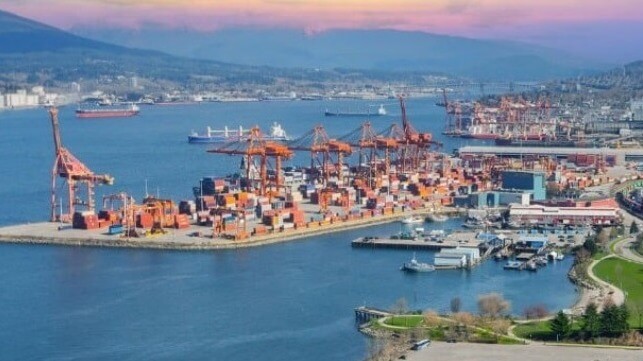Voting Begins Thursday on Third Version of Canada's ILWU Contract

Canadians are anxiously awaiting the outcome of the voting set to begin on Thursday, August 3, on the latest iteration of the contract for the more than 7,500 dockworkers at the ports in British Columbia. Voting is set to proceed on Thursday and Friday on the third agreement after the union’s council rejected the first terms and then the union membership voted down the contract at the end of last week.
July was a tumultuous month for Canada’s West Coast ports with dockworkers beginning a strike that brought the movement of containers and most goods to a haul that more than 30 terminals including Canada’s largest and third-largest ports, Vancouver and Port Rupert. Only grain shipments were exempted by law and passenger and cruise ships were permitted to sail under an agreement between the terminal operators and the union.
The International Longshore and Warehouse Union Canada held a meeting today to present the terms of the proposed contract to the membership. This came after they announced at the end of last week the membership had rejected the prior terms and threatened to resume the dock strike. Federal mediators brought the sides together over the weekend and late on Sunday, July 30 they said new terms had been reached and would be recommended to the members.
Voting will take place to ratify the new collective agreement starting on August 3 and completed on Friday, August 4. Terms of the agreement remain confidential but previously had been reported to provide a compounded wage increase of 19.2 percent over the life of the four-year agreement and increased retirement payouts. The other issues included restrictions on outsourcing of maintenance work and port automation.
Going into these critical steps, reports said port operations were normal at the beginning of this week. Canada’s two large railroads however had previously said it would take weeks to work down the backlogs and restore full operations after the 13-day port strike at the beginning of July.
Labour Minister Seamus O’Regan also said the ports and supply chain was moving while encouraging the long-term agreement to provide certainty and stability at the ports. The union has faced the threat of a government-imposed settlement if they can not agree on the contract. O’Regan said in mid-July that the differences between the employers and union no longer warranted a job action. He warned after the last round that “a state of uncertainty cannot continue.”

that matters most
Get the latest maritime news delivered to your inbox daily.
Experts warn that acceptance even now is not a certainty. If the second union vote also fails, the expectation is that Canada’s Industrial Relations Board would impose a cooling-off period. They would likely move to impose a settlement or send the parties to binding arbitration.
The 13-day strike cost the Canadian economy an estimated $6 billion (US$4.6 billion). Under Canada’s labor laws, the union would be required to file a new 72-hour notice for a strike if this version of the agreement fails to win support.
